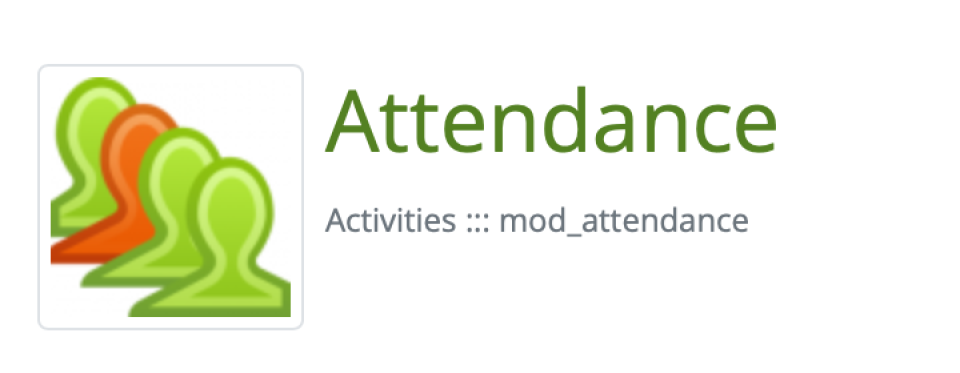
SATLE 2020 - Attendance enhancements
Background
Funding was supplied by the National Forum for the Enhancement of Teaching and Learning (NFETL) under the Strategic Alignment of Teaching and Learning Enhancement (SATLE) 2020 fund to Irish higher education institutions.
Several projects at DCU were funded, the focus of which was 'Transforming Teaching and Learning for Student Success'. One project centred around learning analytics to enhance staff and student engagement.
Among the analytics initiatives undertaken, DCU worked with Moodle Partner Catalyst IT to enhance the functionality of the Moodle Attendance plugin. The aim was to make it easier for staff to record student attendance (or students to self-record), so that engagement data could be tracked, trends identified and interventions to be made, if necessary.

Moodle Attendance Plugin
What is the Moodle Attendance plugin?
The Moodle Attendance plugin allows lecturers to maintain a record of attendance, replacing or paper-based attendance sign-in processes in class. It can be used in lectures or tutorials, and allows educators to track and optionally provide a grade for the students’ attendance.
The plugin is highly scalable; its QR code scanning feature allows a lecture hall of several hundred students to self-record their attendance in seconds. It also provides real-time attendance information to both lecturers and students, where they can review attendance over the course of the semester.
What was the issue?
The Attendance plugin saw an increase in usage in recent years as lecturers attempted to gain insight into student attendance and engagement, and as they moved towards issuing a small portion of attendance and participation marks to overall module grade totals. This was to encourage regular and ongoing engagement with the module, in order to ensure students were building their learning in advance of summative assessments.
In particular, modules with large student cohorts and multiple weekly tutorials sought to benefit from the plugin’s features, but issues began to emerge in configuring the plugin with large amounts of class session data.
- Sessions could only be configured manually from the interface, which required a large amount of time and manually entry for the module co-ordinator of a large module with lecturers and tutorials (e.g. over 300 sessions).
- A site administrator had the ability to import a CSV file of this data, but it was not sustainable for lecturers to contact one person to request the import, especially as often this configuration needed to happen quickly at the semester start for a lot of modules.
- Furthermore, the importing feature was half-built: it would only accept session date and time, and not additional configurations such as session passwords and repeat sessions. It would not accept sessions starting at the same time and would only schedule sessions in 5-minute intervals at the least.
What was done to tackle the issue?
SATLE funding provided for significant enhancements to this plugin:
- Allow editing teachers on a Moodle course to import a CSV file of sessions to a particular Attendance activity on their course
- Support repeating sessions when importing CSV file of sessions
- Support passwords when importing CSV file of sessions
- Support importing sessions to multiple courses at once using a CSV file, without the need for one minute difference in the start and end time
- Allow for the selection of 59 individual minutes and not intervals of 5 minutes
These DCU-led enhancements were packaged with other core enhancements to the plugin and released in its version from June 2022.
What has been the impact of these enhancements?
This has resulted in a much more streamlined experience for lecturers. The time and effort involved in configuring large classes in Moodle Attendance has been reduced significantly. They no longer need the assistance of a site administrator but are empowered themselves to configure the plugin on their own modules, boosting their own digital agency and capability.
Going forward, more lecturers will be encouraged to adopt its usage because the effort threshold has been reduced, and therefore students will have greater insight into their attendance and engagement, and be encouraged to participate continuously in their modules, ahead of summative assessment submissions.
These enhancements, part of the June 2022 plugin version, is available on the Moodle Plugins Directory for all Moodle users in Ireland and across the globe to install. They will remain in the codebase for all future plugin versions. Up to 17,000 Moodle instances can benefit from these enhancements.
